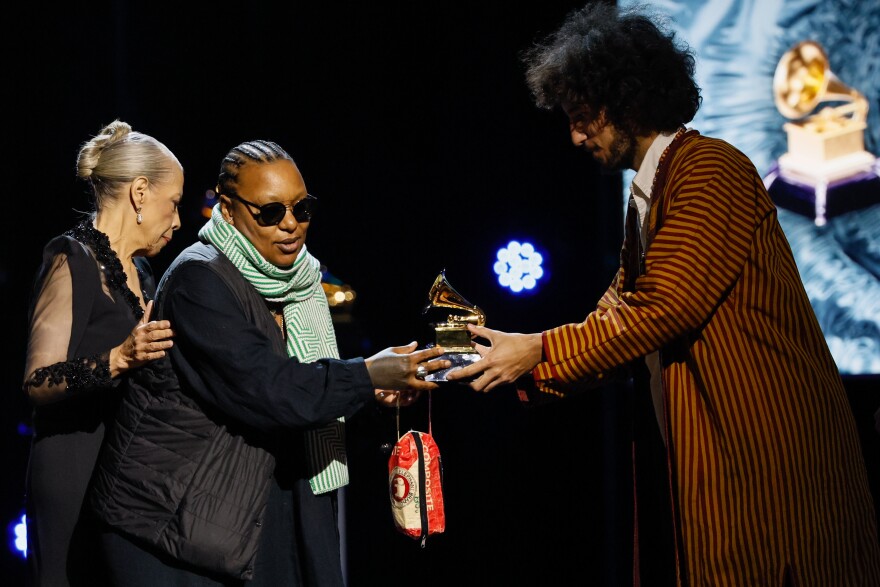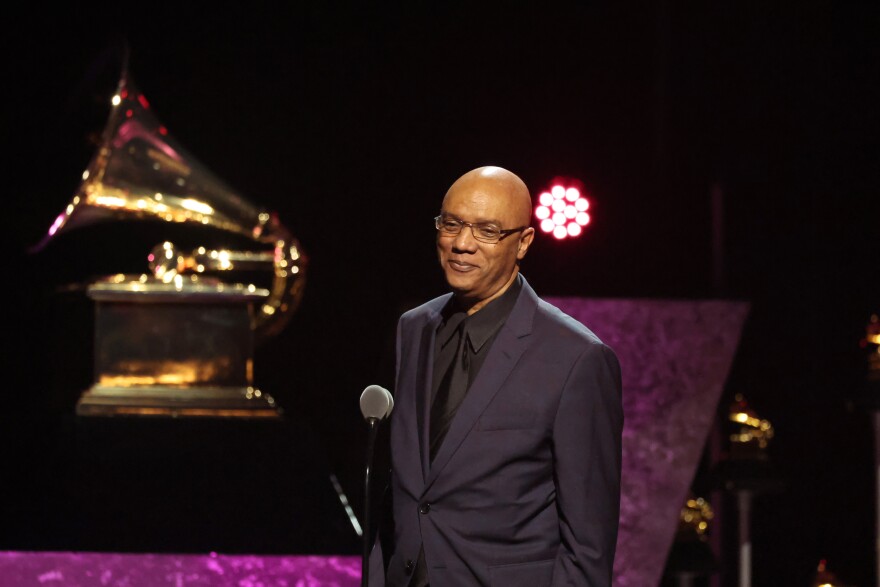Faces both fresh and familiar made up the winner’s circle for jazz at the 66th Annual Grammy Awards. Among them are perennial Grammy contenders like pianist-composer Billy Childs, who won his sixth award for The Winds Of Change, in the category of Best Jazz Instrumental Album; and first-time winner Nicole Zuraitis, who won Best Jazz Vocal Album for How Love Begins.
Zuraitis’ album is a collection of original songs, co-produced with Christian McBride, and it carried her past stiff competition in the category, including presenter Patti Austin and repeat winners esperanza spalding and Cécile McLorin Salvant. But another jazz singer who has become a Grammy fixture — last year’s Best New Artist and Best Jazz Vocal Album winner, Samara Joy — racked up another win in the Best Jazz Performance category, for the spitfire version of Betty Carter’s “Tight” that she released as a single last year.
The Count Basie Orchestra won Best Large Jazz Ensemble Album for Basie Swings The Blues (on which WRTI’s own Josh Lee plays baritone saxophone). Accepting the award, the band’s director, Scotty Barnhart, called back to the very first Grammy Awards. “In 1958, Count Basie won his first Grammy,” he said, “and 66 years later, he’s still winning.”

At the same time, it’s also possible to recognize an occasional changing of the guard. Alto saxophonist Miguel Zenón had been nominated a dozen times without a win before this afternoon. He shares Best Latin Jazz Album with pianist Luis Perdomo for El Arte Del Bolero Vol. 2, their second program of ballads and boleros, performed as a duo. And singer-songwriter and bassist Meshell Ndegecello inaugurated the new Best Alternative Jazz Album category with a win for The Omnichord Real Book. Taking the podium, Ndegeocello thanked her label and producer, her sons, and several of the musicians who contributed to the album — adding an acknowledgment of a village elder: “Oliver Lake, this is for you.”
The vocal foursome säje joined Jacob Collier in a win for Best Arrangement, Instruments and Vocals, for their version of “In the Wee Small Hours of the Morning.” Accepting the award, Sara Gazarek, who serves as Governor of the Los Angeles chapter of the Recording Academy, made the point that säje works independently of any record label or corporate support.

All of these awards were handed out during the Grammy Premiere Ceremony, which takes place hours before the telecast, with a live webcast at grammy.com. This year the ceremony included some performances by jazz-identifying artists, including a summit spearheaded by bassist Adam Blackstone and keyboardist Robert Glasper, in collaboration with alto saxophonist Terrace Martin, who has been to the party with his regular collaborator, rapper Kendrick Lamar, and also under his own steam in the Best Progressive R&B Album category (for which he was nominated again this year). But the performance was undeniably anchored by a pair of distinguished veterans, founding members of the band Fourplay: pianist Bob James and drummer Harvey Mason, Sr. (If that name sounds familiar for more than discographical reasons, it might be because his son, producer Harvey Mason, Jr., is the current CEO of the Recording Academy.)
Another performer at the Premiere Ceremony was Laufey, the Chinese-Icelandic singer-songwriter whose sensational emergence last year sparked a cottage industry of discourse about jazz’s Gen Z revival. She looked and sounded nervous during her delivery of “From the Start,” the bossa nova that lit the fuse for her viral breakthrough. But when she won Best Traditional Pop Album a few moments later, Laufey returned to the stage with a brief and charming acceptance speech, thanking her parents and grandparents for their support, and “the classical and jazz communities of the world that have taught me so much.”


